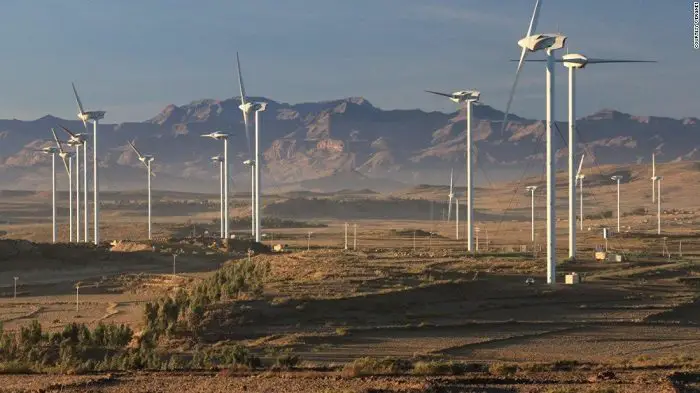The African Center for Energy Policy (ACEP) is urging Ghana to turn to wind power as the solution to restrain the lingering energy crisis in the country.
Some of Ghana factories and businesses have collapsed due to the prolonged power crisis. In 2015, the power crisis in Ghana was at its peak whereby over 900MW of power had to be shed.
A Turkish Karpower barge which is expected to add over 200MW of power to improve Ghana’s situation arrived late last year. However, some parts of the country have been experiencing frequent power cuts, a clear indication that the county’s power situation not stable yet.
According to Mr. Greenstreet, wind energy is cheaper and easier to operate. “Volta River lies between 2 comparable mountain range,” said Greenstreet. “Installing wind turbines in this corridor will utilize wind energy,” he added.
However, Standard wind turbine at an average height of 120m with a diameter of 85m can generate 3MW of energy per unit. Turbines installed at a distance of 300m triangular can generate 9000MW of power believed to meet Ghana’s energy demands.
Ishmael Ackah, Head of Research at ACEP revealed that, the levels of investments will be enormous and that it will be the solution to the unreliable fuel supply for Ghana’s thermal plants.
“I think that we should have a diversity,” said Ishmael Ackah. “Sustainable fuel strategy will have about let’s say 40% component thermal plant, by 2030 we are going to have about 20% renewable energy component,” he added.
Registered in Ghana under the Companies Registration Code with registration number CG044282013, the Africa Centre for Energy Policy was established in 2010.
ACEP is an African energy policy, an advisory based organization working with partners around the World particularly in Africa. ACEP aims to connect Africa’s vast energy resources (oil, gas and renewable) potential for the accelerated development of the Continent.
Additionally, the organization aims to become a centre of excellence in training and advocacy, energy policy analysis on the best use of Africa’s energy resources for equitable and sustainable development.

Leave a Reply